Obituary: Greta Fryxell
Noted oceanographer, female pioneer in academia, great grandmother
Greta Albrecht Fryxell died from congestive heart failure on September 24, 2017 at her home in Claremont at the age of 90.
She was born November 21, 1926 in Princeton, Illinois to Esther Andreen Albrecht and Arthur Joseph (“Ham”) Albrecht. She enjoyed growing up on the family farm near Tiskilwa, Illinois, where she attended public schools. She graduated summa cum laude from Augustana College in Rock Island, Illinois in 1948. After college, she taught math and science for several years at junior high schools in Davenport and Ames, Iowa.
She married Paul Arnold Fryxell on August 23, 1947, when they were both just 20 years old.
Family moves took the Fryxells to Las Cruces, New Mexico, Wichita, Kansas, and Tempe, Arizona before they settled for nearly three decades in College Station, Texas. It was there that Ms. Fryxell began her postgraduate studies at Texas A&M University, where she was among the first classes of women to enroll at 
After postdoctoral studies in Oslo, Norway, she continued her research and taught at Texas A&M, becoming a professor of oceanography, and again blazing a trail as one of the school’s first female professors.
Professor Fryxell was a specialist in marine phytoplankton and took part in research oceanographic cruises in the North Atlantic, Gulf of Mexico and in the waters around Antarctica, working with living cultures as well as with preserved samples from the open ocean. She published widely on her findings in professional journals. Samples were also collected for her project from the equatorial Pacific. Many of these samples are now archived at the University of Texas, Austin, where she and Mr. Fryxell lived in their early retirement years. The couple moved to Claremont in 2005.
Most of her professional career was devoted to open ocean phytoplankton, particularly diatoms, including variation in abundance, life histories and patterns of species succession. In her later career, she became concerned with studies of the sometimes neurotoxic diatoms in the genus Pseudo-nitzschia. This genus is often found in ocean waters near the sea coast, apparently stimulated in part by the pollution resulting from increasing populations of people living near coastlines.
Professor Fryxell received many honors, including the Outstanding Doctoral Candidate Award from the Former Students’ Association at Texas A&M in 1975. She was recognized as the Outstanding Woman of Brazos County in 1979 by 13 cooperating community organizations and received the Outstanding Achievement Award from Augustana College Alumni Association in 1980. An American Association of University Women fellowship named in her honor was contributed by the Bryan/College Station branch of the AAUW.
In 1988, she shared the Provasoli Award of the Phycological Society of America for a paper published in the Journal of Phycology that year with two colleagues, A.M. Wood and R.S. Lande. She also received the 1991 Faculty Distinguished Achievement Award in Research from Texas A&M’s Former Students’ Association, followed by a gold medal from the Geosciences and Earth Resources Advisory Council in 1992.
She received the Lifetime Award of Excellence in Phycology in 1996 from the Phycological Society of America, and was selected as a Fellow of the American Association for the Advancement of Science in 1997.
She is listed in American Men and Women in Science, Who’s Who of Professional and Business Women, Personalities of the South, Who’s Who in America, Who’s Who of American Women, Who’s Who in the Frontiers of Science and Technology, Who’s Who in the South and Southwest, and Who’s Who in the World.
Professor Fryxell felt blessed with excellent students and laboratory assistants, her family shared, and their lives and achievements continued to be of interest and great personal satisfaction to her, as were the many achievements of her family members. She was an active Unitarian Universalist for five decades, serving in many roles in her churches, from religious education to administration. She especially enjoyed and felt supported by the church music in that liberal religion, her family added.
“My mother tended to focus on one thing at a time, and do it whole-heartedly,” her family said. “And yet she also had a remarkable capacity for change.”
As a mother, she baked cakes and sewed clothes from scratch, and created what was then an entirely novel concept—a formal certificate program for babysitters. These activities seemed to be her entire focus. But one day, after her youngest child had finished elementary school, she simply decided to move on to scientific research.
After that, she devoted her energies to her second career in oceanography, “where she accomplished more in half a career than most people do in their entire lives.”
She was constrained by her family ties to pursue her second career at a university where women were not accepted as students, let alone as faculty, when she began. But she reached full professor at this same university and won all of their faculty awards. That certainly seemed to be her vocation, and her professional momentum would have been sufficient to carry her career into her late-70s.
While she was in her late 60s, her husband was diagnosed with advanced prostate cancer, prompting a move to the next stage of her life. She abruptly retired, and her energies were hereafter devoted to driving many miles to take her husband to endless doctor’s appointments, while simultaneously handling the full-time care of her elderly mother, plus taking them both to the family beach house on the south Texas coast two weeks per month.
“That was truly her third career,” her family shared.
After her mother died in 2001, and then her husband in 2011, Ms. Fryxell moved on to her fourth career—writing many volumes of family histories. She was still writing new histories in the last year of her life.
She was predeceased by her sisters Julia Lorraine Albrecht and Miriam Jean Brigida, and her husband of more than 63 years, Paul Arnold Fryxell.
She is survived by her sons Karl Joseph Fryxell and his wife Peggy Kraft Fryxell and Glen Edward Fryxell and his wife, Lenita Ann Fryxell, and daughter Joan Esther Fryxell and her husband, Timothy Michael Ross; five grandchildren and six great-grandchildren; and six nephews.
A memorial service will be held December 2. More information will be published in a future edition of the COURIER. In lieu of flowers, the family asks that honorary donations in Ms. Fryxell’s name be made to the American Macular Degeneration Foundation at macular.org/how-donate, the American Cancer Society at cancer.org, or the National Multiple Sclerosis Society at nationalmssociety.org/donate.


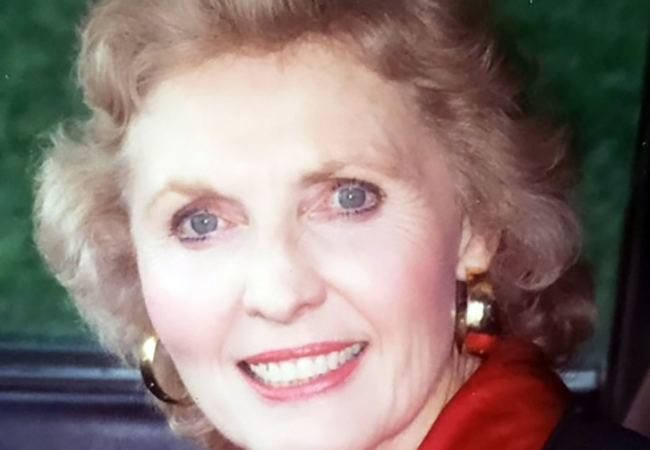
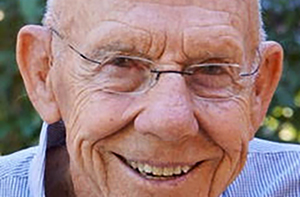
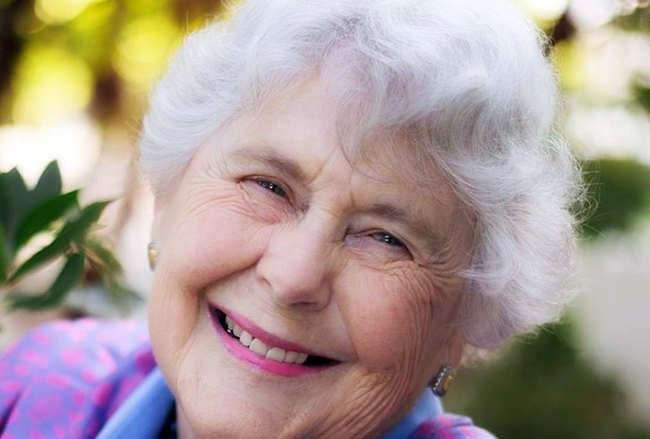
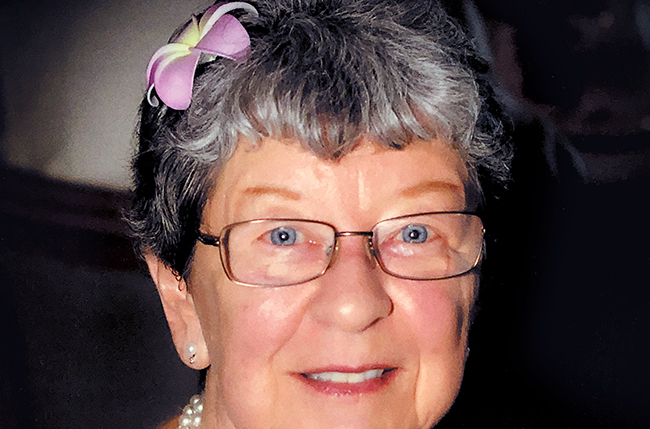
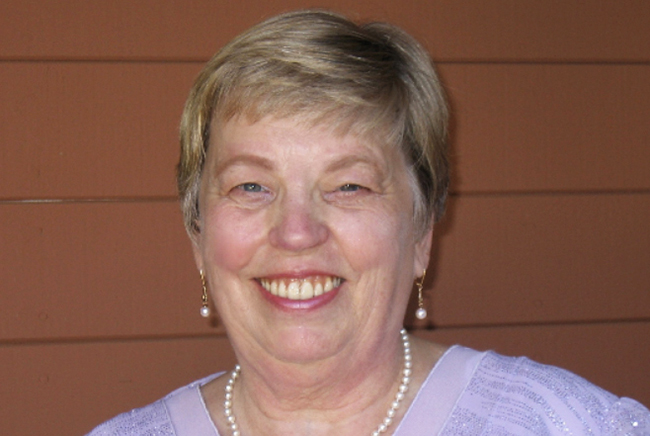
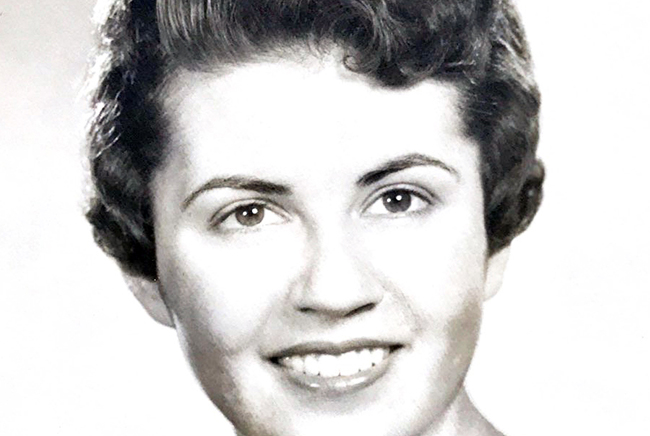

0 Comments